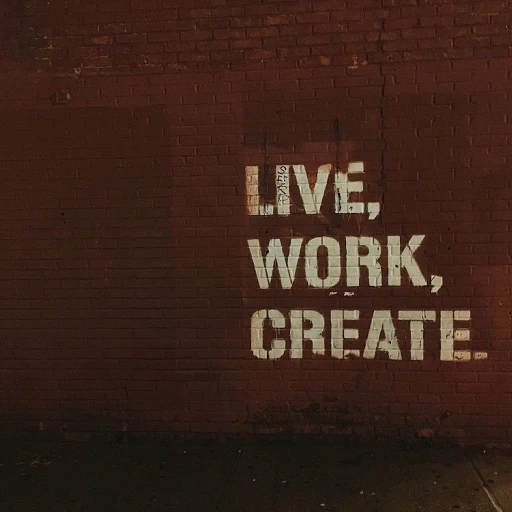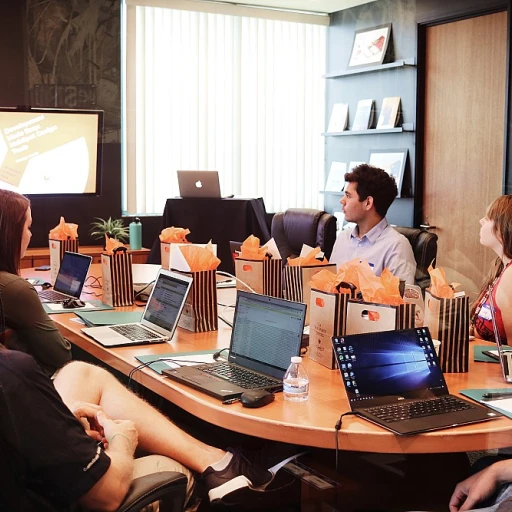
Understanding the role and its requirements
Clarifying the Job Role and Responsibilities
Before diving into the interview process, it's crucial to have a clear understanding of the job role and its specific requirements. This involves detailed preparatory work to outline what exactly is needed from the candidate in terms of skills, experience, and personality traits that align with company culture. Interview questions crafted around these aspects will help guide the conversation and provide insights into how well a candidate might fit the role.
An effective strategy entails defining the core tasks and responsibilities that the role entails. This is where job descriptions come into play, acting as a cornerstone in the hiring process. When drafting interview questions, it’s essential to focus on areas that align with both the technical and soft skills necessary to excel in the position. This approach not only helps in identifying the best fit but also sets a standard for what successful performance looks like.
Including situational interview questions can be particularly insightful. For instance, asking candidates to describe a time when they've had to adapt their management style can reveal adaptability and leadership qualities. Furthermore, questions that delve into previous team experiences can provide valuable perspectives on how a potential hire might interact with existing team members.
Additionally, understanding the broader organizational context can offer a lens through which to frame interview discussions around company values and team dynamics. Effective hiring managers take time to consider how a candidate’s potential contributions can drive the team and company forward. This is where cultural fit becomes a pivotal factor, as aligning individual and company goals often dictates long-term success.
For more nuanced insights into hiring strategies, check out this resource on optimizing remote hiring practices.
Evaluating technical skills and expertise
Evaluating Essential Skill Sets and Technical Competence
During the interview process, hiring managers must focus on assessing the technical skills and expertise that candidates bring to the table. Understanding these competencies is crucial to ensure that the candidate can perform the tasks required by the role effectively. When interviewing for technical positions, it's important to delve into specific technical skills that pertain to the job. Ask questions that help illuminate the depth of the candidate's experience with specific tools, technologies, or methodologies that are essential for your company's success. For instance, you might inquire about specific software proficiency or the candidate's experience managing complex projects. Questions such as, "Can you describe a time when you implemented this technology in your previous role?" can provide insights into practical experience and problem-solving abilities. Another impactful approach is the use of situational interview questions. These questions allow interviewers to gauge how candidates would handle real-world challenges. For example, "How do you ensure quality when faced with tight deadlines?" is an interview question that not only reveals technical skills but also exposes management style and adaptability. Soft skills are equally significant, as they ensure candidates will work well within the team and adapt to company culture. These skills might include communication, teamwork, and problem-solving. Including questions like "Describe a time when you successfully worked as part of a team" can provide valuable insights into a candidate's ability to collaborate and contribute positively to the team dynamics. Evaluating these skill sets helps ensure that you hire candidates who are not only technically capable but also a good fit within the organization’s ethos and working style. It’s critical to remember that assessing both hard and soft skills provides a more comprehensive understanding of how a candidate will perform in their new role. For additional insights on how to evaluate technical skills effectively, consider exploring effective techniques for providing interview feedback.Assessing cultural fit and values alignment
Determining Company Culture Compatibility
Evaluating whether a candidate aligns with the company culture is a pivotal aspect of the interview process. It's vital for hiring managers to craft questions that will help in uncovering how well candidates will fit in with their team members and adapt to the company's values. Questions in this area aim to reveal a candidate's preferred work environment and personal values to ensure a harmonious match with the company's ethos.
A key question during a job interview might revolve around asking candidates to describe a time when they faced a work-related challenge and how their approach reflected their work ethic or interpersonal skills. This can help gauge if their style complements the current team and company culture. Additionally, inquiries into their management style or experiences working with diverse teams can offer insight into how candidates might navigate similar environments within the new role.
One effective strategy is to incorporate situational interview questions, which prompt candidates to discuss hypothetical scenarios. For example, “How would you handle a situation where you disagreed with a team decision?” Such questions help hiring managers ascertain not just a candidate’s skills, but also their potential fit in the role and team dynamics.
Understanding a candidate's pet peeves or soft skills can further illuminate their compatibility with the position and organizational environment. For instance, if a candidate expresses a dislike for micromanagement, it would be essential to ascertain if the company's management approach aligns accordingly.
Ultimately, assessing cultural fit and values alignment helps identify candidates who will thrive in the company's environment, promoting long-term success and satisfaction. For additional guidance on capturing top talent through job ads, comprehensive resources are available.
Behavioral questions to predict future performance
Behavior-Based Queries for Insightful Predictions
The focus during the selection process should not only be on a candidate's resume or technical prowess but also on understanding how they might perform in future scenarios. This is where behavioral questions can serve as a powerful tool in predicting prospective performance. Behavioral questions rely on the premise that prior behavior in similar circumstances is often a good indicator of future actions. In order to reveal valuable insights into a candidate's potential, ask them to "describe a time when" specific challenges were faced and how they responded. This approach not only provides concrete examples but also allows candidates to demonstrate their soft skills and cultural adaptability. It’s important to tailor these questions around the specific requirements of the job role.
Consider using questions that pertain to:
In order to reveal valuable insights into a candidate's potential, ask them to "describe a time when" specific challenges were faced and how they responded. This approach not only provides concrete examples but also allows candidates to demonstrate their soft skills and cultural adaptability. It’s important to tailor these questions around the specific requirements of the job role.
Consider using questions that pertain to:- Team Work: "Can you describe an instance when you had to work collaboratively with team members to meet a challenging deadline? What was your contribution and what was the outcome?"
- Problem-Solving: "Tell us about a time when you encountered a significant obstacle at work. How did you approach and resolve it?"
- Adaptability: "Describe a situation where you had to adjust to a significant change at work. How did you manage the transition?"













